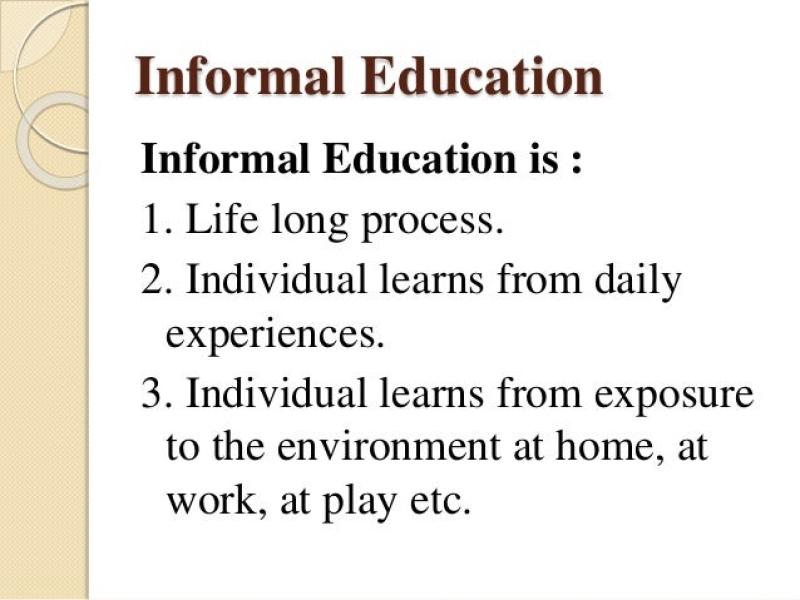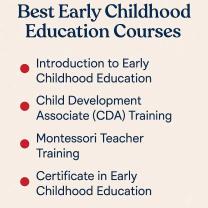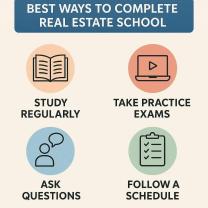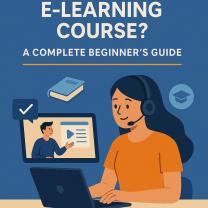What are the aims of informal education?
Informal education refers to learning that takes place outside of formal educational institutions such as schools and colleges. It is often spontaneous, learner-driven, and occurs in various settings. The objectives of informal education are diverse and can vary depending on the context, but some common aims include:
Lifelong Learning: Informal education encourages individuals to adopt a mindset of continuous learning throughout their lives. It promotes the idea that learning is not limited to specific periods but is a lifelong process.
Skill Development: Informal education can focus on the acquisition of practical skills that may not be covered in formal settings. This includes skills such as problem-solving, critical thinking, communication, and interpersonal skills.
Personal Development: Informal learning aims to foster personal growth and development. It may include activities that contribute to self-awareness, emotional intelligence, and the development of one's identity and values.
Cultural and Social Awareness: Informal education can expose individuals to diverse cultures, perspectives, and social issues. It helps in developing an understanding of the world, promoting tolerance, and fostering a sense of global citizenship.
Creativity and Innovation: Informal education often provides opportunities for creative expression and innovation. It encourages individuals to explore their interests, think outside the box, and develop a creative mindset.
Community Engagement: Informal education can contribute to community building and social cohesion. It often involves collaborative learning experiences and community-based activities, fostering a sense of belonging and shared responsibility.
Adaptability: Informal learning prepares individuals for the challenges of a rapidly changing world by enhancing adaptability and flexibility. It encourages the development of skills that are transferable across various contexts.
Interest-Based Learning: Informal education is often driven by individual interests and passions. It allows learners to pursue subjects and activities they are enthusiastic about, leading to more meaningful and enjoyable learning experiences.
Empowerment: Informal education empowers individuals by giving them control over their learning experiences. It allows for self-directed learning, where individuals take responsibility for setting their own goals and managing their learning process.
Health and Well-being: Informal education can contribute to holistic well-being by promoting physical, mental, and emotional health. Activities such as sports, arts, and mindfulness practices often play a role in informal learning environments.
It's important to note that these objectives are not mutually exclusive, and informal education often serves multiple purposes simultaneously. The flexible and dynamic nature of informal learning allows it to cater to the diverse needs and interests of individuals.
What specific objectives or goals are pursued through informal education?
Informal education encompasses a broad spectrum of learning experiences that occur outside of traditional structured settings like classrooms or institutions. It is an ongoing, lifelong process that involves acquiring knowledge, skills, and values through daily interactions, observations, and experiences. While informal education may not have predetermined objectives or goals, it serves several valuable purposes, including:
Expanding Knowledge and Skills: Informal education provides opportunities to broaden one's understanding of the world and develop new competencies. It can happen through casual conversations, hands-on activities, hobbies, self-directed exploration, and exposure to diverse environments.
Personal Growth and Development: Informal education fosters personal growth by encouraging self-reflection, critical thinking, and problem-solving skills. It helps individuals develop their unique talents, interests, and perspectives, contributing to their overall well-being.
Socialization and Community Engagement: Informal education facilitates social interaction and community engagement. It encourages collaboration, communication, and empathy, leading to stronger social connections and a sense of belonging.
Adaptation and Flexibility: Informal education equips individuals with the ability to adapt to change and navigate new situations. It encourages lifelong learning and the willingness to embrace new experiences and perspectives.
Creativity and Innovation: Informal education stimulates creativity and innovation by providing opportunities for experimentation and exploration. It encourages individuals to think outside the box and find new solutions to challenges.
Preparation for Formal Education and the Workplace: Informal education can lay the foundation for success in formal education and the workplace. It cultivates essential skills like communication, problem-solving, and teamwork, which are highly valued in professional settings.
Lifelong Learning and Self-Directed Learning: Informal education promotes lifelong learning and self-directed learning. It encourages individuals to take ownership of their learning journey and seek out new knowledge and experiences throughout their lives.
Enjoyment and Personal Fulfillment: Informal education can be a source of enjoyment and personal fulfillment. It allows individuals to pursue their passions, expand their horizons, and contribute to their communities in meaningful ways.
In essence, informal education plays a crucial role in shaping individuals' lives, fostering personal growth, and equipping them with the skills and knowledge to navigate an ever-changing world.












